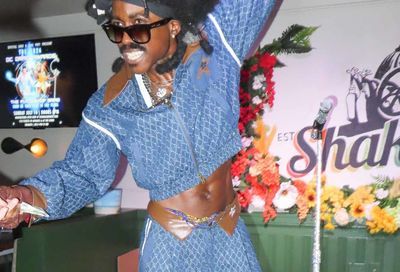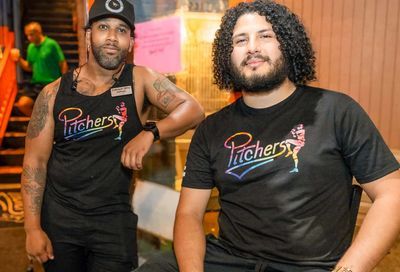Florida County Pushes to Ban All LGBTQ Books
Charlotte County Schools officials directed librarians to remove any book containing LGBTQ characters or themes from their collections.

Top officials at a Florida school district ordered all books and materials containing LGBTQ characters and themes removed from classrooms and campus libraries to conform with the state’s expanded “Don’t Say Gay” law.
Charlotte County Schools Superintendent Mark Vianello and Michael McKinley, the attorney for the Charlotte County Schools, recently responded to questions from the district’s librarians at a July meeting asking whether the law required the removal of books with LGBTQ characters but contained no explicit sex scenes.
“Books with LBGTQ+ characters are not to be included in classroom libraries or school library media centers,” Vianello and McKinley said in response, according to a district memo obtained under a public information request by the Florida Freedom to Read Project.
The nonprofit group, which opposes the law’s provisions making it easier to challenge or remove books from schools, provided the memo to The Associated Press last week.
After receiving negative press, the district backed off slightly from an across-the-board ban, clarifying that it primarily applied to elementary and middle schools.
The district said that high school libraries could keep non-explicit books with LGBTQ characters and themes in their collections, but could not use any of those books in classroom instruction, according to the investigative journalism website Popular Information.
The expansion of the “Parental Rights in Education” law — dubbed the “Don’t Say Gay” law by critics — passed earlier this year after conservatives said the original 2022 law didn’t go far enough in stopping LGBTQ-themed materials from being accessed by minors.
Under the new restrictions, the ban on LGBTQ content was applied to all grades — except in rare instances for some high school biology or health classes.
The law also allows any county resident — regardless of whether they have children enrolled in school — to demand the removal of books they deem objectionable from school library shelves.
Supporters of the law tout its provisions as “commonsense solutions” that allow parents, not teachers, to decide if and when to broach the topics of sexual orientation or gender identity with their children.
Florida Gov. Ron DeSantis, now a candidate seeking the Republican presidential nomination, has attempted to emphasize some of the culture-war issues — including an opposition to “woke” ideology, including any form of acknowledgment of LGBTQ identity — that he has championed as governor, in the hope of appealing to Republican primary voters.
Charlotte County’s policy is one of the more stringent policies in the state.
Florida Freedom to Read argues that Charlotte County’s policy is “evidence that fear over thoughtful decision-making is winning the day,” according to The AP. But the group also places the blame for the confusion over book removals on Florida Department of Education officials, who have aggressively pursued rules targeting LGBTQ visibility under the guise of promoting “parental rights” or protecting students from “indoctrination.”
“[DOE officials’] failure to lead and use their power to benefit the future of Florida is a disservice to all Floridians, no matter their political leanings,” Florida Freedom to Read said in a statement. “Parents want politics out of education. We want all students to feel safe and included, so they can focus on their education while in school. Removing all representation of LGBTQ+ people in literature goes against our very principles of living in a free and just, pluralistic society.”
Other Florida school districts have attempted to use the law to justify restrictions on student reading material.
The Hillsborough County School Board, covering Tampa and its surrounding suburbs, recently announced that schools would no longer be permitted to read William Shakespeare’s plays in full, citing the “parental rights” law and flagging content in the bard’s work that some might find objectionable, including allusions to sexuality, violence, incest, and instances of cross-dressing by key characters.
In Lake County, in the central part of the state, district officials sought to ban the children’s book And Tango Makes Three, a picture book based on a true story of two male penguins at the Central Park Zoo who incubated an egg and raised the chick who hatched from it, citing the “Don’t Say Gay” law’s prohibitions on LGBTQ content.
The book’s authors subsequently sued over the ban, arguing that the content is not sexual and that the ban may be unconstitutional because it infringes on the authors’ freedom of expression, and students’ right to access information.
The county later reversed the ban and demanded the lawsuit be dismissed, based on guidance from the Florida Department of Education that the “Don’t Say Gay” law restrictions only applied to classroom instruction, not mere existence within library collections.
Support Metro Weekly’s Journalism
These are challenging times for news organizations. And yet it’s crucial we stay active and provide vital resources and information to both our local readers and the world. So won’t you please take a moment and consider supporting Metro Weekly with a membership? For as little as $5 a month, you can help ensure Metro Weekly magazine and MetroWeekly.com remain free, viable resources as we provide the best, most diverse, culturally-resonant LGBTQ coverage in both the D.C. region and around the world. Memberships come with exclusive perks and discounts, your own personal digital delivery of each week’s magazine (and an archive), access to our Member's Lounge when it launches this fall, and exclusive members-only items like Metro Weekly Membership Mugs and Tote Bags! Check out all our membership levels here and please join us today!


























You must be logged in to post a comment.